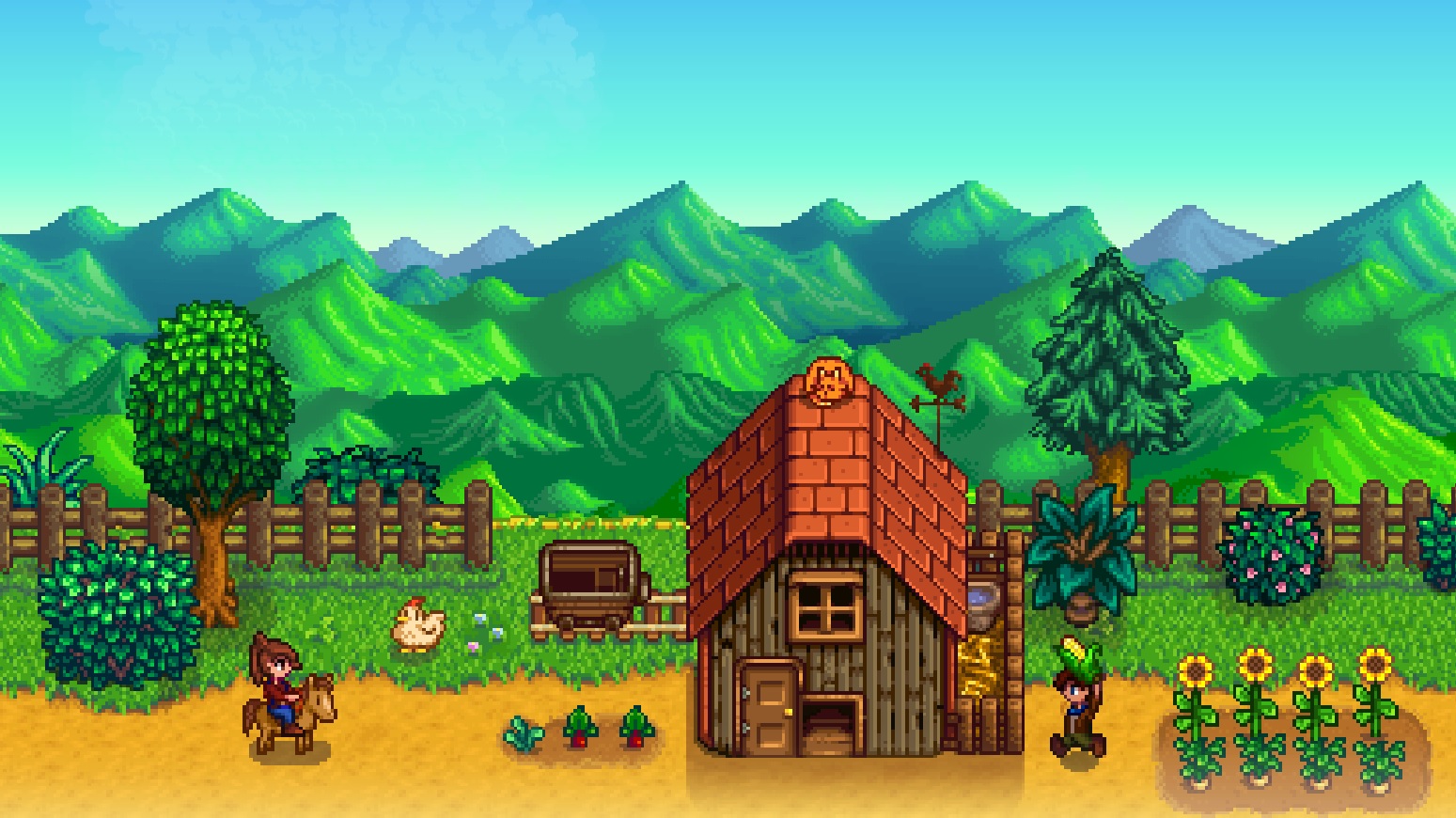After the supposedly final flourish of 1.6, Stardew Valley creator says 'I could keep working on the game forever' and is 'not going to say the book is closed'
"I'm not going to say [there's] no chance for future updates. That would be foolish."

Earlier this year Stardew Valley received patch 1.6, a final flourish from the game's creator Eric "ConcernedApe" Barone that added a host of new features to a game that's now over eight years old. PC Gamer got the opportunity to talk to Barone in our latest issue about this apparent full stop, and how the developer feels about a game that has now shifted north of 30 million copies.
Update 1.6 arrived in March and, among other things, added a new farm type, support for 8 player co-op, and late game content. But perhaps even more characteristic of it was the sheer number of little things it addressed, like a sword glitch that had irritated its developer for eight years. "Mostly, it's just how I feel, my whims," says Barone of how these updates come together. "It helps when I play the game myself, then I will get ideas: 'Man, I wish this was in the game', or a spark of an idea."
As for the small stuff, some of it seems sparked by player queries (like the abomination of drinkable mayonnaise) "I do look somewhat at player feedback and requests, but it's not the ultimate compass that I navigate by," says Barone. "I try to follow my feelings and intuition. What I think would make the game more fun."
As for the game's phenomenal success, "it's great! I'm glad people like Stardew Valley so much. The more people enjoy it, the deeper they enjoy it, the happier I get." Well, there is one thing that's a little annoying: "If I had known how popular Stardew Valley would be and how many updates and languages [it would receive], I would have spent more time up-front in a way to make my life easier for making all these updates."
One thing Barone was at pains to do with 1.6 was ensure broad compatibility with Stardew Valley's enormous modding scene (players can even opt-out entirely if it'll keep their mods going). "The lore of the world and characters has taken on a life of its own beyond what I thought possible" says Barone, later addressing narrative mods in particular. "I am open to mods and I am fine with anyone making any mods they want. Even adjusting and adding to the story: it's not canon. Only the vanilla game is canonical. I don't mind if people want to add their own fan stories to the game, as long as it's clear it's not canon."
Looking back over Stardew Valley's long development, the creator has no real regrets. "There were lots of earlier ideas that didn't make it into the final game but I'm OK with that," says Barone. "It felt like that was just the nature of development. I feel like I could keep working on the game forever, every aspect of the game could be enriched. But I've now spent 12 years working on this so at some point you have to move on or focus on something new."
For the moment, Barone remains focused on ironing out any remaining 1.6 kinks, but as for the future with Stardew Valley? "Nothing is planned but I'm not going to say the book is closed," ends Barone. "I don't make big plans. I like to just see what happens. I don't want to be locked down. I don't know how I'll be feeling. Once 1.6 is squared away, I will try to take a break. I want to turn my attention towards Haunted Chocolatier. I'm not going to say [there's] no chance for more updates, that would be foolish."
Keep up to date with the most important stories and the best deals, as picked by the PC Gamer team.
You can read the full interview in issue 397 of PC Gamer, on-sale now.

Rich is a games journalist with 15 years' experience, beginning his career on Edge magazine before working for a wide range of outlets, including Ars Technica, Eurogamer, GamesRadar+, Gamespot, the Guardian, IGN, the New Statesman, Polygon, and Vice. He was the editor of Kotaku UK, the UK arm of Kotaku, for three years before joining PC Gamer. He is the author of a Brief History of Video Games, a full history of the medium, which the Midwest Book Review described as "[a] must-read for serious minded game historians and curious video game connoisseurs alike."

